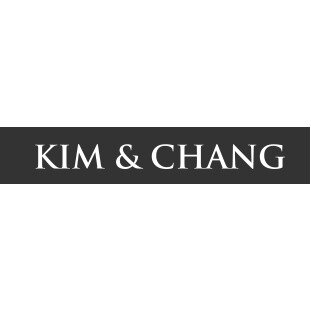Best Tax Increment Financing Lawyers in Jongno-gu
Share your needs with us, get contacted by law firms.
Free. Takes 2 min.
List of the best lawyers in Jongno-gu, South Korea
About Tax Increment Financing Law in Jongno-gu, South Korea
Tax Increment Financing (TIF) in Jongno-gu, South Korea, is a public financing method used to subsidize community improvement projects. The approach is primarily aimed at stimulating local economic growth by using the future tax revenues the improvements are expected to generate. In Jongno-gu, TIF can be used to support developments such as infrastructure enhancements, urban redevelopment, and public amenities improvements.
Why You May Need a Lawyer
Legal assistance in Tax Increment Financing may be necessary for various reasons. You might require a lawyer if you are a developer or business owner considering a project that could benefit from TIF. A lawyer can help you navigate the application process, understand eligibility criteria, and ensure compliance with local regulations. Property owners and residents may also need legal guidance if a TIF project affects property taxes or leads to eminent domain considerations. Furthermore, government entities and community organizations involved in TIF projects often seek legal counsel to facilitate negotiations and contract management.
Local Laws Overview
Jongno-gu, being a historic and central district in Seoul, has specific regulations regarding Tax Increment Financing aimed at balancing modernization with cultural preservation. Key aspects include precise criteria for project eligibility, stringent environmental and cultural impact assessments, and a mandate for community involvement in the planning process. Additionally, Jongno-gu’s local laws require transparent fiscal reporting and a clear communication strategy to keep the public informed about TIF projects and developments.
Frequently Asked Questions
1. What is the purpose of Tax Increment Financing?
TIF is intended to encourage investment and development in areas that may be underutilized or in need of revitalization by leveraging anticipated future tax gains.
2. How does a TIF district get established in Jongno-gu?
The establishment of a TIF district involves a proposal submission, feasibility studies, and approval from local government officials, ensuring alignment with Jongno-gu’s urban development plans.
3. What types of projects are typically funded by TIF in Jongno-gu?
Projects often funded by TIF include infrastructure upgrades, historic site preservation, affordable housing developments, and urban redevelopment projects that bolster the local economy.
4. How are property taxes affected by TIF?
During the TIF period, property tax revenues are typically frozen at the pre-improvement level. Incremental tax revenues resulting from increased property values post-project go towards financing the project itself.
5. Who benefits from a TIF project?
Benefits accrue to various stakeholders, including developers who get financial backing, the community through improved infrastructure and services, and local governments by enhanced economic activity and higher future tax revenues.
6. What are the risks associated with TIF?
Risks include project financing gaps if projected increments do not materialize, potential gentrification, and the misallocation of funds if not properly managed.
7. Can a TIF plan be modified after approval?
Yes, amendments can be made, but they require additional approvals and potentially public hearings to ensure transparency and continued alignment with community goals.
8. How long does a TIF district typically last in Jongno-gu?
TIF districts can vary in duration but traditionally last between 15-30 years, contingent upon the specifics of the individual project and its financial landscapes.
9. What is the role of the community in TIF decisions?
The community plays a critical role through public consultations and engagement processes, helping ensure that projects meet local needs and preserve cultural integrity.
10. Are there other financing alternatives to TIF?
Yes, alternatives such as public-private partnerships, government grants, and traditional bank financing may be considered either independently or in conjunction with TIF.
Additional Resources
For further information, the following resources may be useful:
- The Office of Urban Regeneration in Jongno-gu: Provides guidelines and criteria for TIF approvals.
- South Korea's Ministry of Land, Infrastructure, and Transport: Offers national regulatory frameworks and resources for urban development financing.
- Legal advice centers in Jongno-gu: Organizations providing pro bono legal advice can be contacted for initial guidance.
Next Steps
If you need legal assistance in Tax Increment Financing, consider reaching out to a local attorney specializing in municipal finance or urban development law. Ensure the lawyer is familiar with both national and Jongno-gu-specific regulations. Initial consultations can provide valuable insight into TIF feasibility for your project, potential legal challenges, and the strategic benefits of TIF in Jongno-gu.
Lawzana helps you find the best lawyers and law firms in Jongno-gu through a curated and pre-screened list of qualified legal professionals. Our platform offers rankings and detailed profiles of attorneys and law firms, allowing you to compare based on practice areas, including Tax Increment Financing, experience, and client feedback.
Each profile includes a description of the firm's areas of practice, client reviews, team members and partners, year of establishment, spoken languages, office locations, contact information, social media presence, and any published articles or resources. Most firms on our platform speak English and are experienced in both local and international legal matters.
Get a quote from top-rated law firms in Jongno-gu, South Korea — quickly, securely, and without unnecessary hassle.
Disclaimer:
The information provided on this page is for general informational purposes only and does not constitute legal advice. While we strive to ensure the accuracy and relevance of the content, legal information may change over time, and interpretations of the law can vary. You should always consult with a qualified legal professional for advice specific to your situation.
We disclaim all liability for actions taken or not taken based on the content of this page. If you believe any information is incorrect or outdated, please contact us, and we will review and update it where appropriate.









